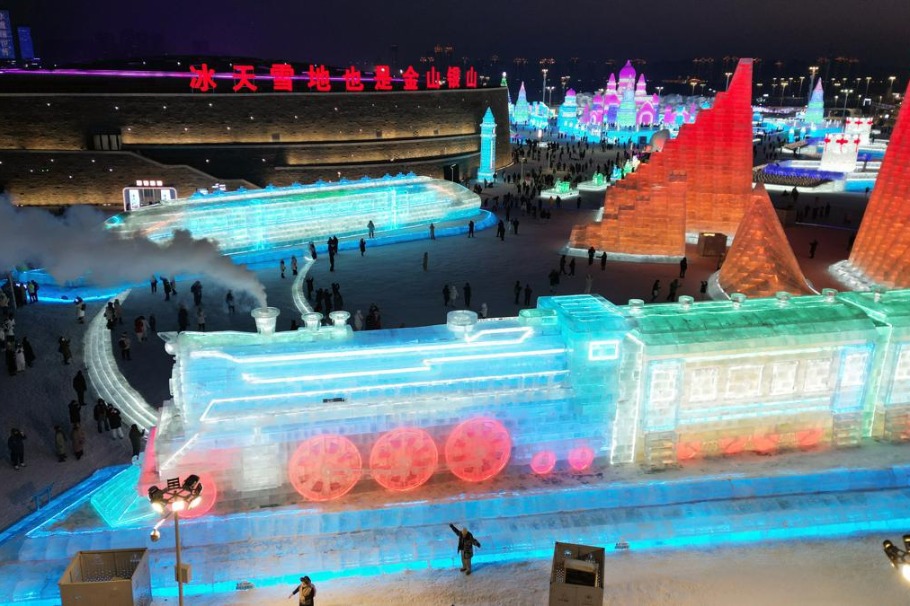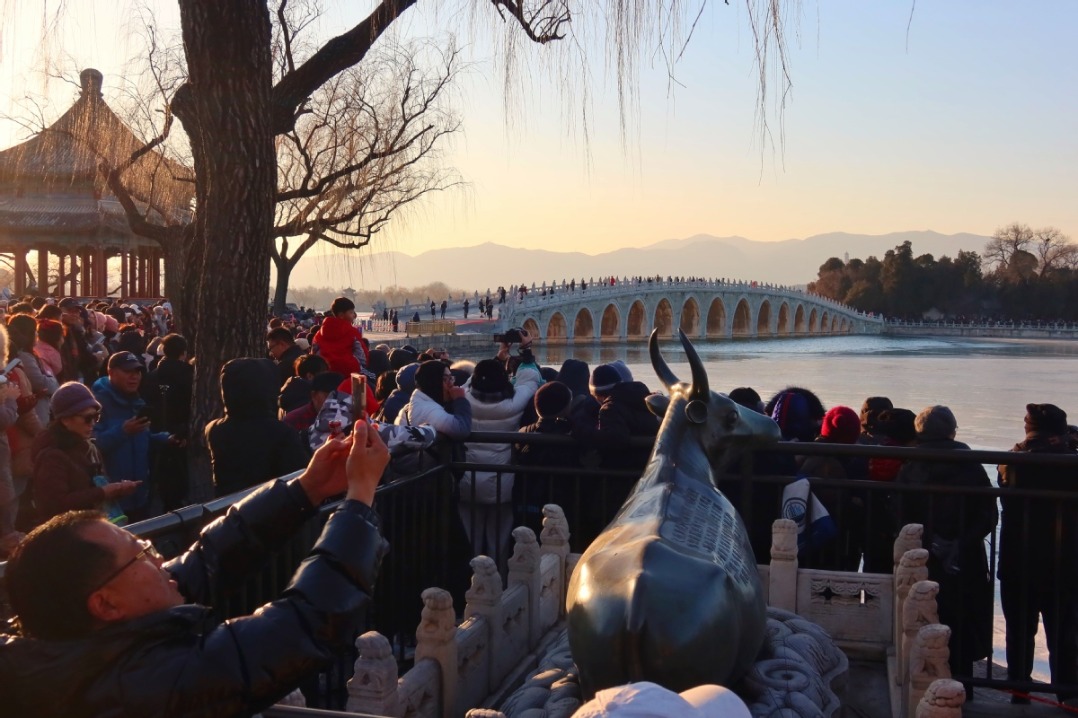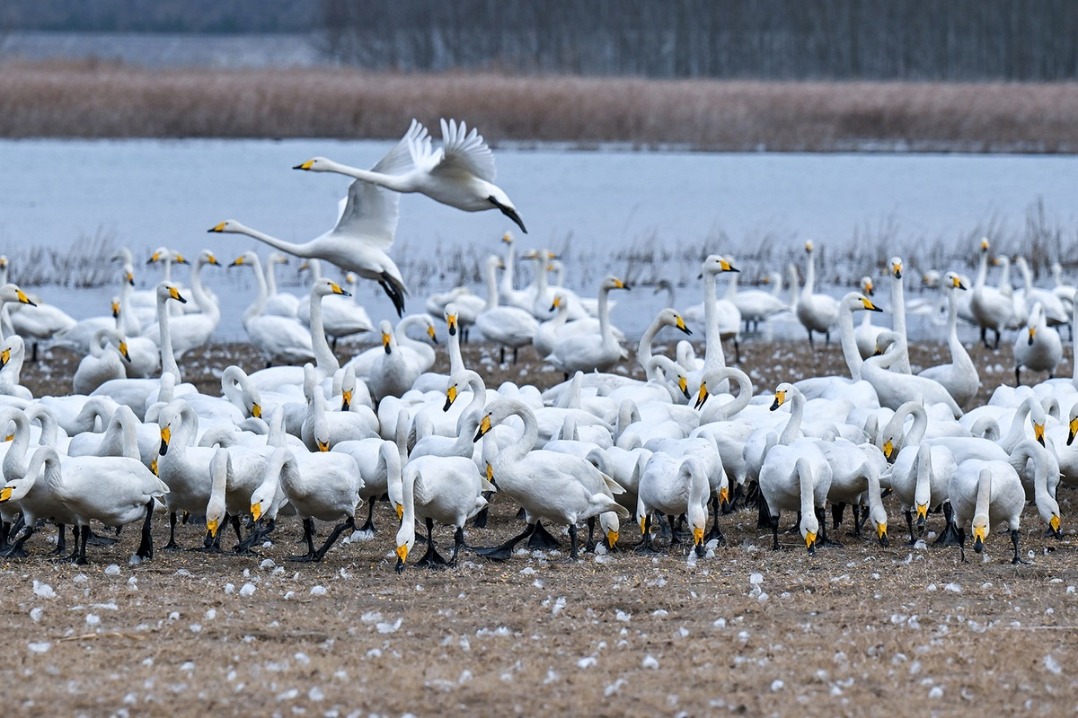Unity shines through during factory cleanup


"Roll up your sleeves and work hard." The message written on a blackboard at a plastics factory in a village in Beijing's Fangshan district is as daunting as it is blunt.
It was originally written by a 49-year-old factory worker surnamed Ma to inspire her colleagues to work hard and make up for lost time during the COVID-19 epidemic. Now, it is being used to encourage workers to clean up the mess of mud, water and debris at the factory caused by torrential rain and floods from Typhoon Doksuri.
As of 6 am on Tuesday, Mentougou and Fangshan, two mountainous districts in western Beijing, received precipitation of about 470 millimeters and 415 mm respectively, according to official figures.
At around 9 am on Monday, floodwaters flushed down nearby mountains and surged into the plastics factory, Ma said.
"I was terrified as I'd never seen such a big flood in real life. The water was so dirty, filled with wooden sticks and wooden boxes. Although we had made preparations and stacked sandbags at the factory gate, the floodwaters quickly breached the bags and rushed into the factory," she said.
The workers ran to get on the rooftop and the factory's bosses quickly arranged a forklift to move them to safe places, she said.
After the floodwaters began to recede there were 30 workers at the factory. In the afternoon they began the task of cleaning up the mess.
At around 2 pm on Wednesday, 50 soldiers from the People's Liberation Army's Beijing garrison joined the recovery and cleanup efforts.
They started by helping clear the main road to the factory and the village.
Song Helong, one of the soldiers, said they planned to clean up the road on Wednesday and Thursday before moving to other flood-hit areas that need their help.
In recent days, the PLA soldiers have been to five different places, moving trapped people, shoring up dikes and clearing away mud, he said.
Song, 37, has been a PLA soldier for 15 years and done disaster-relief work many times. In July 2012, he participated in rescue efforts when floods and mountain torrents hit Beijing, killing at least 79 people.
Compared with 2012, the rainfall this time is much heavier, but has not caused that much damage, he said.
Many people in at-risk places were transferred at an early stage and tourist sites in the city had closed in time, he said.
"Cleaning up this street is not the hardest job we have done, but it can help people get back to normal life soon," he said.
Villager Li Runcheng, 63, said it is the heaviest rain he has ever seen, with the deluge rarely stopping over three days.
"We stayed indoors and have not dared to leave our home," he said. "We feel relieved to see the PLA soldiers and we are moved by their efforts."
- 2,309 regulations filed with China's top legislature for review in 2025
- Chinese researchers pinpoint seed genes for enhancing food security
- Public interest litigation plays prominent role in China's governance
- 15 arrested in 1b yen robbery in Hong Kong
- Chinese lawmakers conduct third deliberation of draft national development planning law
- Multiple cities probe illegal activities in 'private cinemas'





































